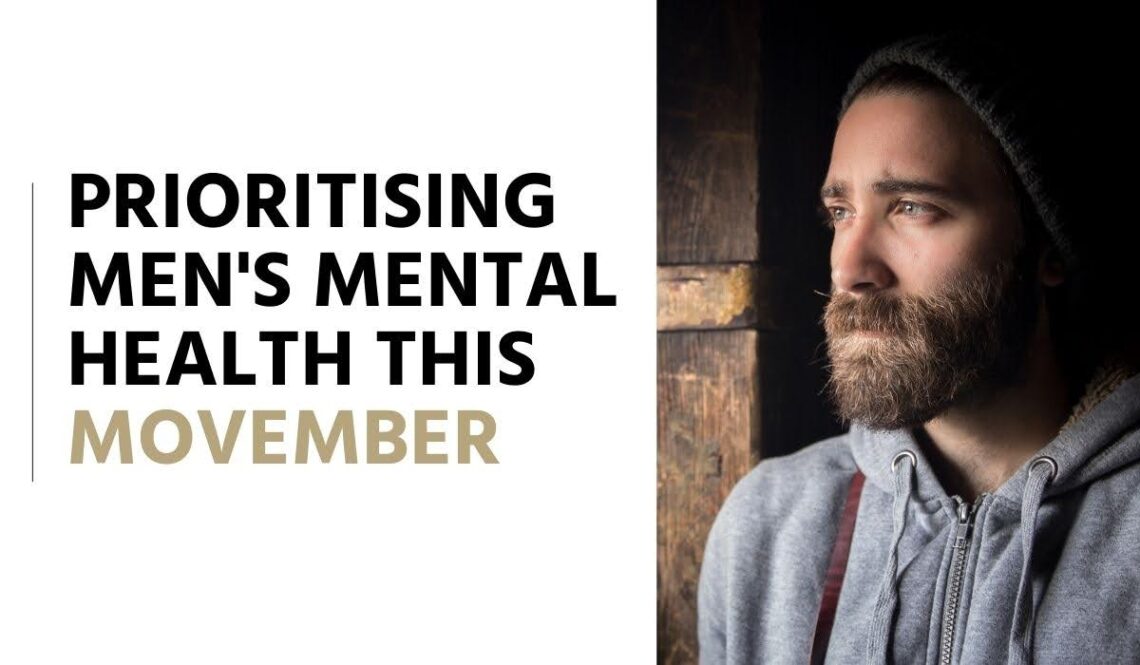
Prioritising Men’s Mental Health This Movember
As Movember approaches, it’s essential to spotlight men’s mental health. Often overlooked or stigmatised, men’s mental health is a critical issue that demands attention and action. Movember, known primarily for raising awareness about men’s physical health issues like prostate and testicular cancer, also serves as a crucial platform for addressing mental health. This blog explores the importance of prioritising men’s mental health and provides practical steps for fostering well-being.
Understanding the Importance of Men’s Mental Health
Breaking the Stigma
One of the biggest challenges in addressing men’s mental health is the stigma surrounding it. Many men feel pressured to conform to societal expectations of masculinity, which often discourage expressing emotions or seeking help. This stigma can lead to silence, isolation, and untreated mental health issues. Breaking down these barriers is crucial for encouraging men to speak up and seek support.
The Impact on Overall Health
Mental health significantly impacts overall well-being. Poor mental health can lead to physical health problems, relationship issues, and diminished quality of life. By prioritising mental health, men can improve their physical health, enhance their relationships, and lead more fulfilling lives.
Addressing Common Mental Health Issues
Men are susceptible to various mental health issues, including depression, anxiety, and stress. Recognising the signs and symptoms of these conditions is the first step towards addressing them. Symptoms can include persistent sadness, irritability, changes in sleep or appetite, and a loss of interest in activities.
Practical Steps to Prioritise Men’s Mental Health
Encourage Open Communication
Creating an environment where men feel comfortable discussing their mental health is essential. Encourage open communication by normalising conversations about mental health. This can be achieved through mental health awareness campaigns, workplace initiatives, and supportive social networks.
Promote Healthy Lifestyle Choices
Physical health and mental health are closely linked. Encourage men to engage in regular physical activity, maintain a balanced diet, and get adequate sleep. These healthy lifestyle choices can significantly impact mental well-being.
Provide Access to Mental Health Resources
Ensure that men have access to mental health resources. This can include information about local mental health services, counselling options, and support groups. Providing easy access to these resources can make a significant difference.
Implement Workplace Mental Health Programmes
Workplaces play a crucial role in supporting men’s mental health. Implementing mental health programmes, providing access to Employee Assistance Programmes (EAPs), and promoting work-life balance can help create a supportive environment.
Encourage Social Connections
Strong social connections are vital for mental health. Encourage men to maintain and build meaningful relationships with family, friends, and colleagues. Social support can provide a sense of belonging and reduce feelings of isolation.
Foster Emotional Intelligence
Emotional intelligence involves recognising, understanding, and managing emotions. Encourage men to develop emotional intelligence through practices like mindfulness, journaling, and therapy. This can help them navigate their emotions more effectively.
As we approach Movember, it’s crucial to prioritise men’s mental health. By breaking the stigma, encouraging open communication, promoting healthy lifestyle choices, and providing access to mental health resources, we can support men in leading healthier, more fulfilling lives. Let’s use this Movember as an opportunity to create a more supportive environment for men’s mental health and well-being.



